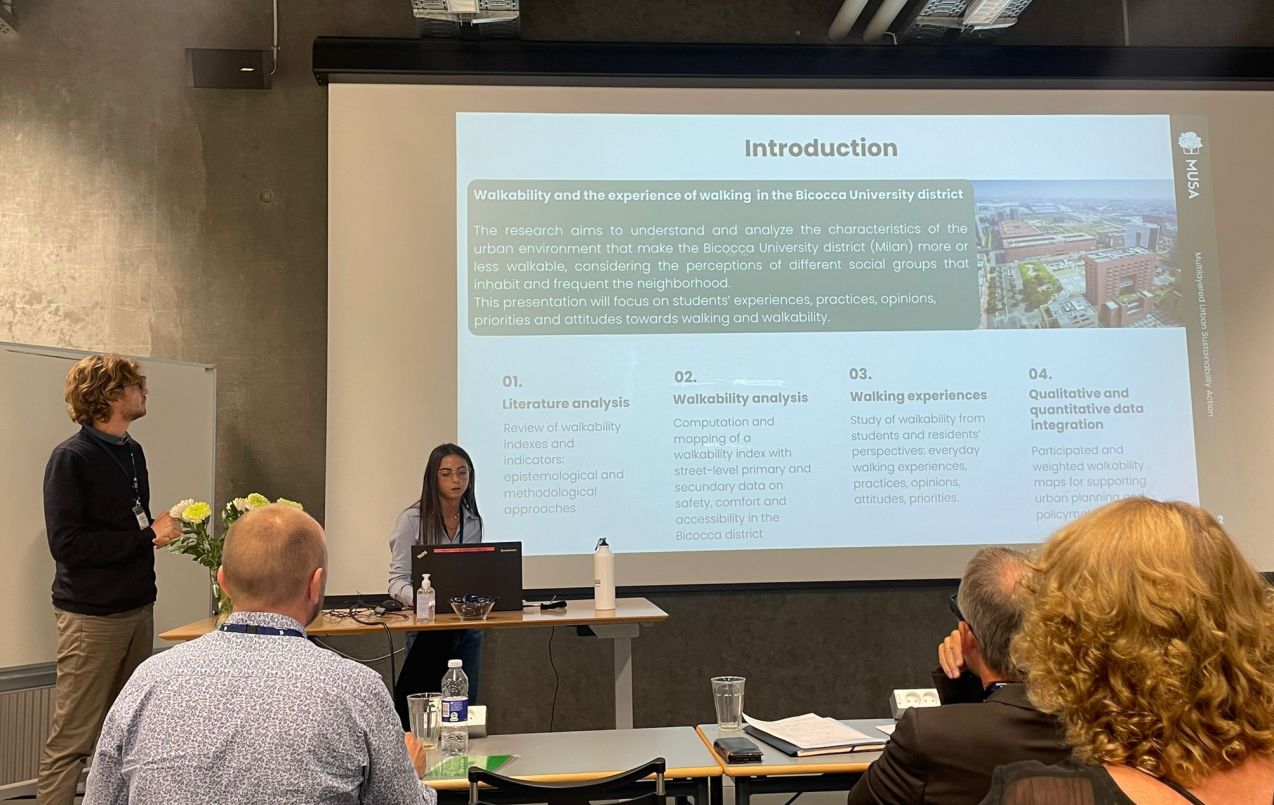The MUSA Spoke 1 team in Copenhagen to share research results on sustainable and safe mobility in the Milan-Bicocca university district.
The International Conference ‘Mobilities Controversies – Place, Justice, Democracy’, organised by the Centre for Mobility and Urban Studies (C-MUS), took place at Aalborg University in Copenhagen. This event brought together academics from all over the world to address mobility issues and its many facets. In a global context of environmental, energy, health and geopolitical crises, the conference offered a platform to reflect on how mobility affects and is affected by these major changes. The conference was attended by over 30 researchers and professors from various international universities, creating a stimulating environment for the exchange of ideas on key issues.
A particularly relevant talk was given by the MUSA project team, represented by a delegation from Spoke 1, who presented the results of their research on ‘walkability’ in the Bicocca university district in Milan. Professor Luca Daconto, researcher Oscar Azzimonti and PhD student Sara Della Santina presented a study entitled ‘Walking through Walkability Controversies’, which explored the perceptions of students at the University of Milan-Bicocca regarding the ease and safety of walking in the university area. The study, based on focus groups, analysed crucial issues such as sustainable, safe, active and inclusive mobility. The presentation of the Spoke 1 group allowed them to share the results of their research in the field, obtaining valuable feedback from an audience of experts in the field. The quality of the contributions and the focus on specific topics fostered new collaborations and strengthened the network of contacts with scholars from other countries, all engaged in the study of active and sustainable mobility.
During the event, relevant topics such as mobility-related justice and the dynamics of social exclusion that can emerge from inequitable urbanisation were discussed. The importance of adopting an inclusive and democratic approach in the planning of urban spaces was emphasised. Mobility, in fact, not only concerns the movement of people and goods, but also political, social and environmental dimensions. Professor Daconto’s study on walkability in the Milanese university context fits perfectly into this framework, as it analyses the inequalities and barriers students encounter when using urban spaces.





